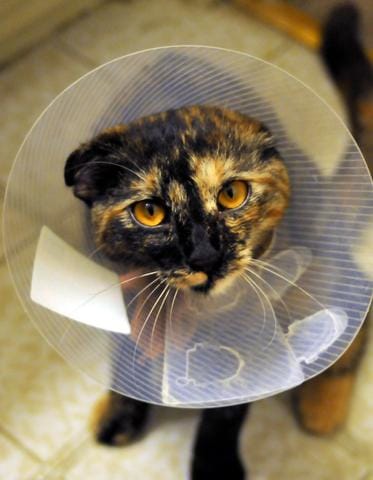
Domestic cat's health care could also be almost like caring for other pets. But such care can also have its own differences. One among them is that pet cats may suffer from several diseases that other pets might not undergo. Here is a list of some cat diseases that domestic cats may suffer from at some point.
Feline Distemper
This disease usually affects domestic cats at a young age. Known medically as feline panleukopenia, this sort of virus infection lowers down the immune defenses of young kittens by severely affecting white blood cells' production. With this infection, young kittens can pass liquid stool with blood thanks to the severe hemorrhaging in their intestine. Fever can also be expected and can lead the young kitten to become depressed then refuse to take any food and water. It's going to seem to the pet owner that the cat features a moody personality, hence the name feline distemper. This infection actually has no effect on the cat's character in any way. Sadly, recovery for such conditions is sporadic for a cat.
Feline Infectious Peritonitis
This is another virus infection that's also fatal in cats. Once your domestic cat shows signs of this infection, it can take years and years of trouble. This infection is typically expected in young adult cats and may be transmitted to other cats. There are two known sorts of this infection. The "dry" type is when the young adult cat suffers from high fever and problems with internal organs like the kidneys, lungs, and intestines. With this infection, the cats never seem to improve, regardless of how well the treatment is given. With the "wet" type of the disease, the young adult cat has a fluid discharge within the abdomen. Sometimes the cat's chest displays a golden and dense liquid that contains flakes within. This infection makes the cat have a high fever and sometimes does not eat well. Vaccination is the only protection that cats have over the disease. But vaccines should be given to domestic cats before any exposure to the virus, or else the vaccine wouldn't be beneficial to stop any infection.
Feline Immunodeficiency Virus
This disease is analogous to the Human Immune Deficiency Virus or HIV in humans and is only found in cats. It is being spread mainly through a bite from an infected cat. The virus suppresses the cat's immune system and leads the cat to be more susceptible to all kinds of infection. There's an intranasal vaccine available to guard cats against FIV infection. However, some veterinarians don't seem to be convinced that it can defend more effectively than other vaccines.
Feline Leukemia Virus
This one can severely limit an infected cat's immune system. A cat with this virus has limited ability to defend against all kinds of other infections. This virus is often spread from contact with infected cats. Many cats become carriers of the virus for years without displaying any symptoms of the disease. Cats harboring the virus may sometimes develop clinical signs of the infection if they undergo surgery, get injured, or once wander off outside their usual environment. These diseases may give pet owners a plan of how pet cat health care could also be essential to make sure that their pets live healthier and longer lives.

